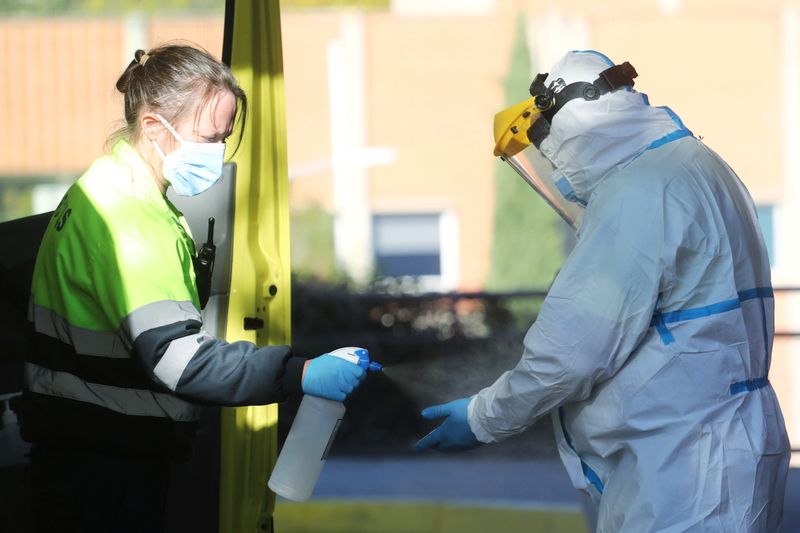MADRID (Reuters) - The Spanish government is considering new restrictions, including possible curfews, in hard-hit regions like Madrid in a bid to tackle a new wave of coronavirus contagion, Health Minister Salvador Illa said on Tuesday.
The country, which has Western Europe's highest case load, is likely to surpass one million infections this week and several regions have toughened their coronavirus restrictions in the past few days.
Between Friday and Monday, Spain added nearly 38,000 cases, bringing the cumulative total to 974,449. The death toll jumped by 217 to 33,992.
Imposing a curfew in Madrid - one of Europe's hotspots of the pandemic - and possibly beyond would require invoking a state of emergency, Illa told reporters. Any such measure lasting more than two weeks would require the support of some opposition parties, she added.
But that could prove challenging in Spain's deeply polarised parliament.
Towards the end of Spain's first state of emergency lockdowns from March to June, the opposition opposed any further extensions and has recently been against extending a government-ordered partial lockdown in Madrid.
The Madrid region's top health official, Enrique Ruiz Escudero, told Spanish news agency Europa Press earlier authorities were evaluating whether a curfew was needed but they did not have the power to enforce it and would have to ask the central government.
"A curfew would mean...that at some hours there's no mobility, like France has done for example," he said.
France last week ordered a curfew in Paris and eight other cities from 9 p.m. to 6 a.m.
The Socialist-led coalition government declared a two-week state of emergency on Oct.9 to impose a partial lockdown in and around Madrid, meaning people can leave their homes but must remain within the city.
Following weeks of disagreement between regional and national authorities over what policies to adopt, minister Illa said the government would not seek an extension of its decree after it expires on Friday.
However, he said yet unspecified tough restrictions would have to be imposed in Madrid for three weeks in any case.
Ruiz Escudero has also said that the region was preparing to test sewage water for COVID-19 to estimate the prevalence of the virus among the city's population.
"It would be like testing thousands of people at once," he said.
